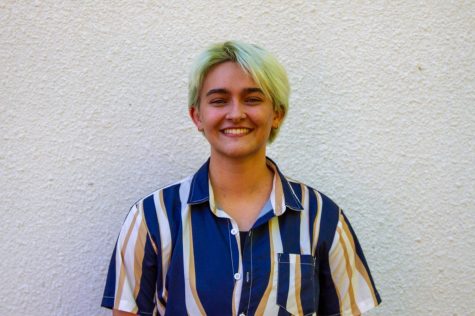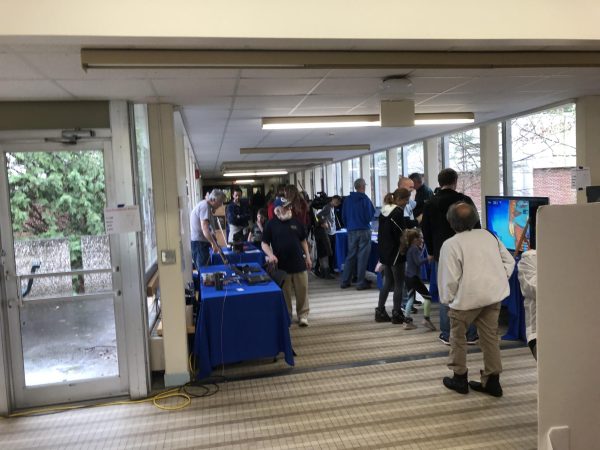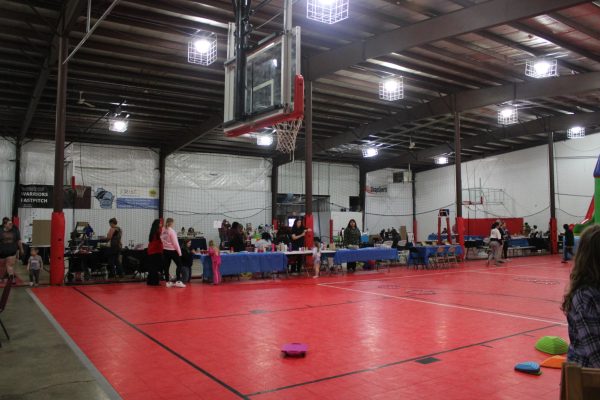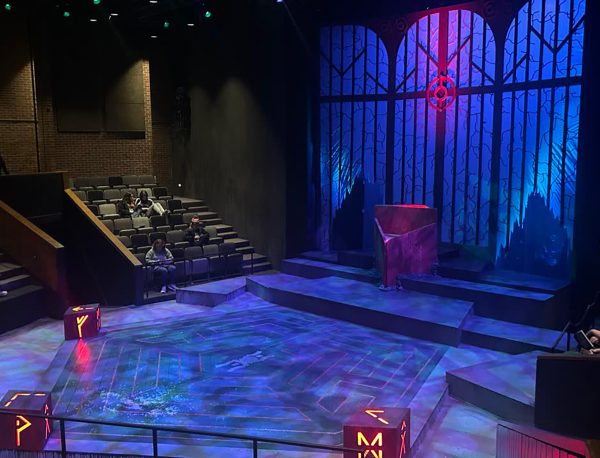Across the pond
Class is in session
Photo by Lea Kopke
Note: “Across the Pond” is an ongoing column in which two freelance writers will be writing about the difference in cultures they are discovering during their semesters abroad. Lea Kopke is studying in Marburg, Germany and Lauren Spierings in Valladolid, Spain.
Lea (Germany)
While I stay in Germany, I am participating in an intensive German language program, so my experience is not that of a typical German student. I will be taking three German courses: the first with the Studienkolleg — a program for students hoping to eventually study at a German university, the second with the regular international students, and the third a culture course with just my program (which consists of only nine students).
Last week I finished testing with the Studienkolleg, which divides you into “Stufen” (levels) based on your amount of German knowledge. The program is almost entirely filled with immigrants and refugees from around the world. In my class we had students who came from everywhere from Russia to Pakistan to Brazil. Some students were still teenagers, while others were adults with families.
The building my class was in is covered in graffiti and filled with drafts, old technology and broken outlets. According to some friends of mine, the other Studienkolleg buildings are similar. The rest of the campus is modern and clean. It was eye opening to see the vast inequalities in learning environments between regular university buildings and the Studienkolleg.
Unlike the typical hour or two long American university lectures, this class lasted from 9 a.m. to 1 p.m. It had a thirty minute “Pause” (break) during which students either went outside to smoke or stayed inside to eat a sandwich they had picked up from the bakery. Each class had two teachers who split which days they were in the classroom.
The style of teaching was very different from what I’m used to. German teachers are very blunt and do not sugarcoat their teaching. If I misspoke while answering a question, my teacher would interrupt me and make me correct my grammar or pronunciation before I was able to move on. When passing out corrected essays or practice tests, my teachers would call people out by name, in front of the class, on either their mistakes or places in which they excelled.
That brings me to the biggest difference in German classes: grading. A student’s score is not cumulative, but rather based on their finals. For my program I took a reading, writing, listening and speaking final over the course of two days. The first three exams were taken on a Friday, and the following Monday I was given the results.
Only students who pass the written portion of the exam are allowed to take the spoken portion. At the end of the speaking final my teacher gave me the breakdown of my grades and told me if I passed. This was a very intimidating experience compared to the typical weekly grade check on Canvas. It forces students to work to understand every aspect of the course at once, not just a few pieces at a time.
Lauren (Spain)
Classes in university typically start later in the day than classes in the United States. The earliest classes are around 9:30 a.m.
Depending on someone’s field of study and classes that semester, classes can finish just before lunch around 2-3 p.m. and may also continue after lunch and siesta.
Classes are one hour long, however between each class the professors may allow up to 10 minutes of passing time before they start the next class or lesson.
Additionally, a student will not normally move to another building for their classes over the course of the day. All of their classes will take place in the same building, but possibly different rooms. Which building the student studies in depends on the department or field of study a student is a part of.
If students have a small break (called a “descanso”), they can run to the campus cafe (cafetería) and grab a café con leche or bocadillo to tide them over until lunch time.
During the break, many students and teachers will also step outside to smoke a cigarette. Smoking cigarettes indoors in Spain is illegal, so many people move to the street to do so.
Addressing a teacher or professor can be a tricky process, which is dependent upon how formal or informal the teacher is and upon the different forms of verb conjugations in Spanish. There are two different tenses to address someone: the informal “you” (tú) and the formal “you” (usted).
It is polite to address people clearly older than yourself with the formal tense and people clearly younger with the informal tense, unless you know them very well.
In my time as an international student, all of my professors allow us to call them by their first name and use the informal tense to address them. One should also use the informal tense to address classmates.
The grading system and tests in Spain are different to the United States as well. The coursework is largely pass or fail, most grades are dependent on test results. Additionally, students receive less homework than is normal in the United States.
Due to my status as an international student, it is possible that my experiences with schooling are not the “typical” schedule a Spanish university student would follow. However these are facts that I have observed during my time here.
Up next: drinking abroad.
Kopke can be reached at [email protected].
Spierings can be reached at [email protected].

Lea Kopke is a fourth-year journalism and German student. This is her seventh semester on The Spectator staff. She plays the clarinet in the Blugold Marching Band and recently relearned how to ride a bike with no hands.

Timothy Spierings is a fourth-year Spanish and journalism student. This is their eighth semester on The Spectator staff. They enjoy trying all types of new foods and listening to new music artists and are currently trying to learn the bass guitar.











